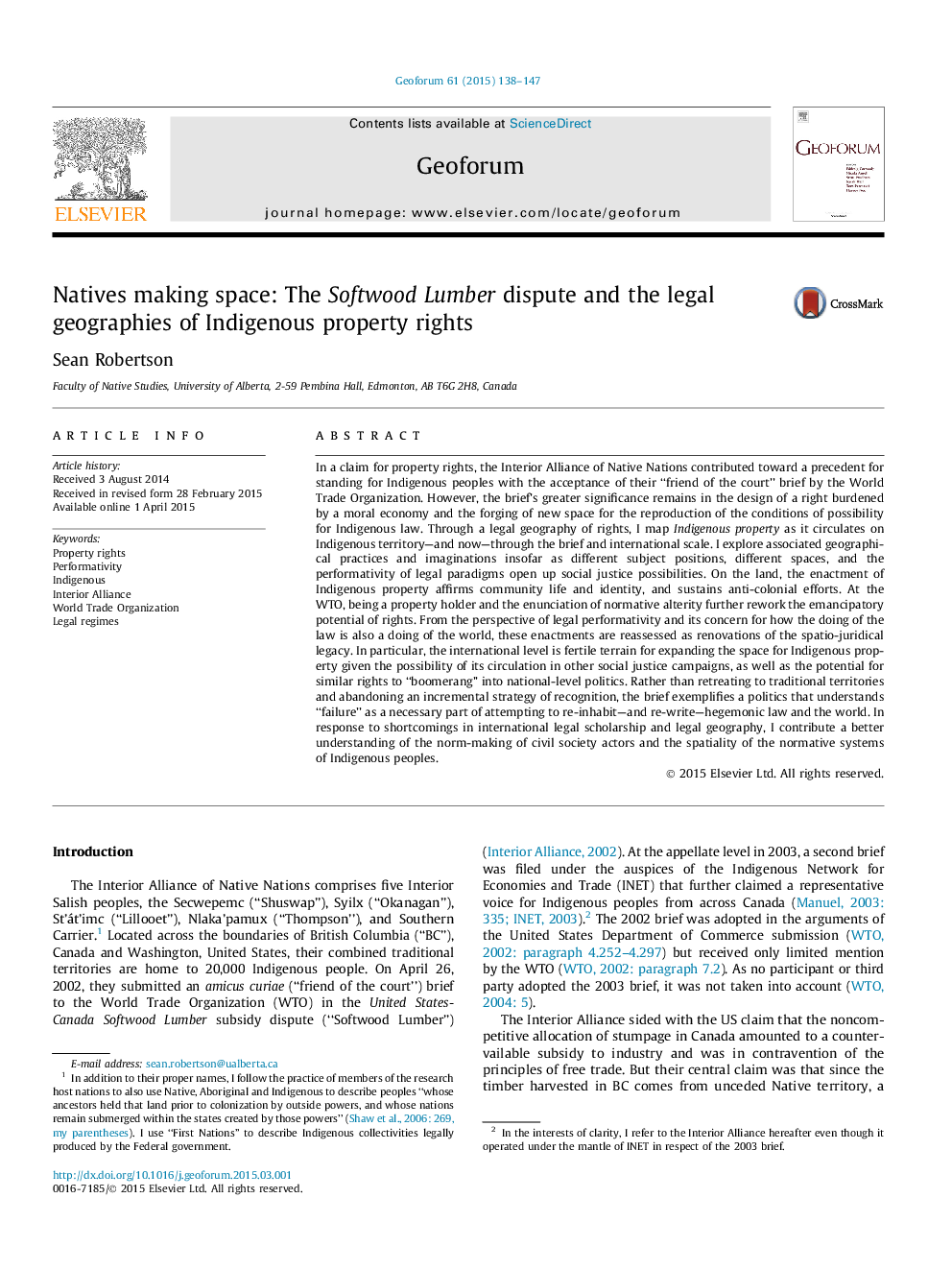| Article ID | Journal | Published Year | Pages | File Type |
|---|---|---|---|---|
| 5073778 | Geoforum | 2015 | 10 Pages |
Abstract
In a claim for property rights, the Interior Alliance of Native Nations contributed toward a precedent for standing for Indigenous peoples with the acceptance of their “friend of the court” brief by the World Trade Organization. However, the brief's greater significance remains in the design of a right burdened by a moral economy and the forging of new space for the reproduction of the conditions of possibility for Indigenous law. Through a legal geography of rights, I map Indigenous property as it circulates on Indigenous territory-and now-through the brief and international scale. I explore associated geographical practices and imaginations insofar as different subject positions, different spaces, and the performativity of legal paradigms open up social justice possibilities. On the land, the enactment of Indigenous property affirms community life and identity, and sustains anti-colonial efforts. At the WTO, being a property holder and the enunciation of normative alterity further rework the emancipatory potential of rights. From the perspective of legal performativity and its concern for how the doing of the law is also a doing of the world, these enactments are reassessed as renovations of the spatio-juridical legacy. In particular, the international level is fertile terrain for expanding the space for Indigenous property given the possibility of its circulation in other social justice campaigns, as well as the potential for similar rights to “boomerang” into national-level politics. Rather than retreating to traditional territories and abandoning an incremental strategy of recognition, the brief exemplifies a politics that understands “failure” as a necessary part of attempting to re-inhabit-and re-write-hegemonic law and the world. In response to shortcomings in international legal scholarship and legal geography, I contribute a better understanding of the norm-making of civil society actors and the spatiality of the normative systems of Indigenous peoples.
Related Topics
Social Sciences and Humanities
Economics, Econometrics and Finance
Economics and Econometrics
Authors
Sean Robertson,
